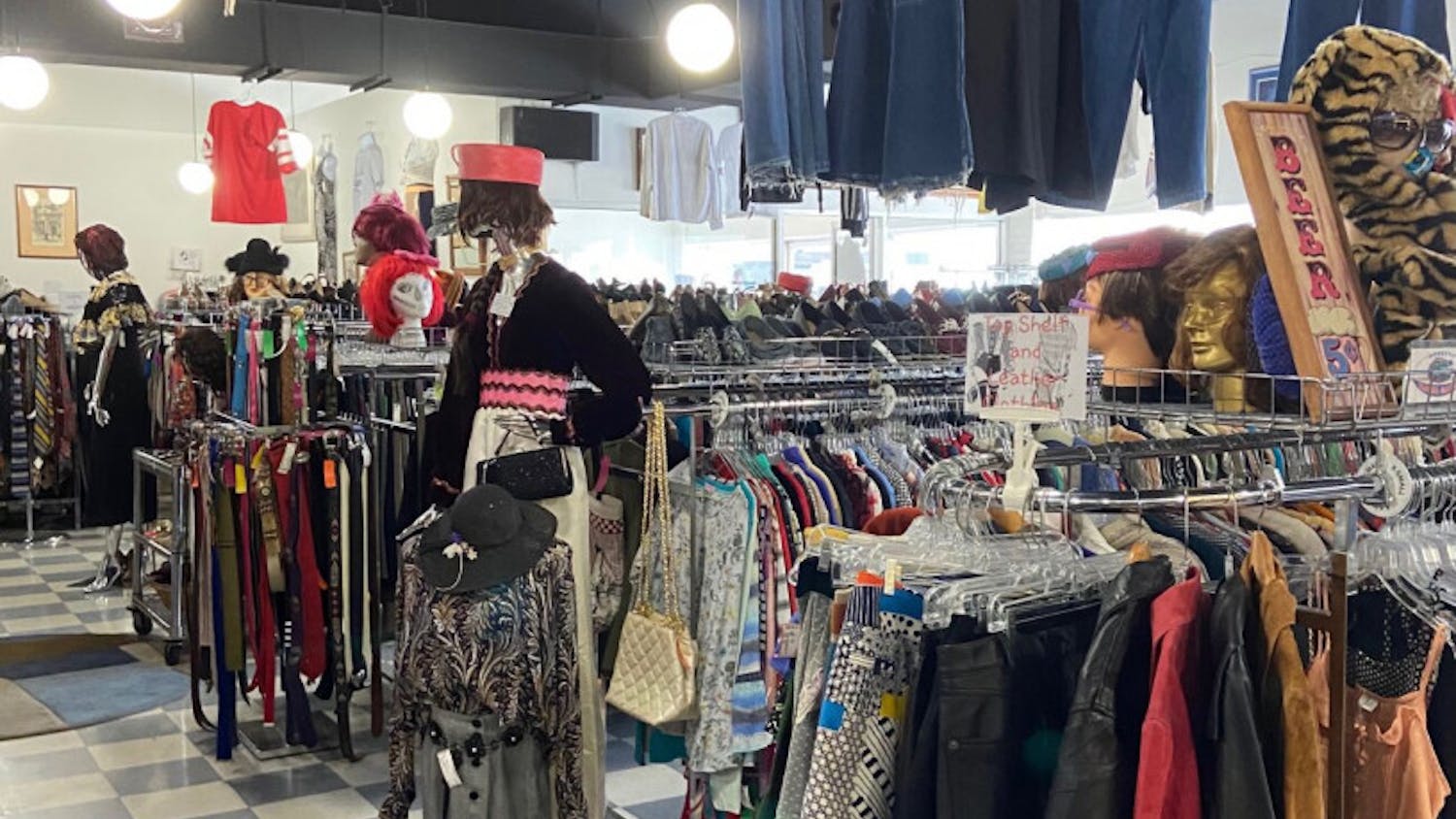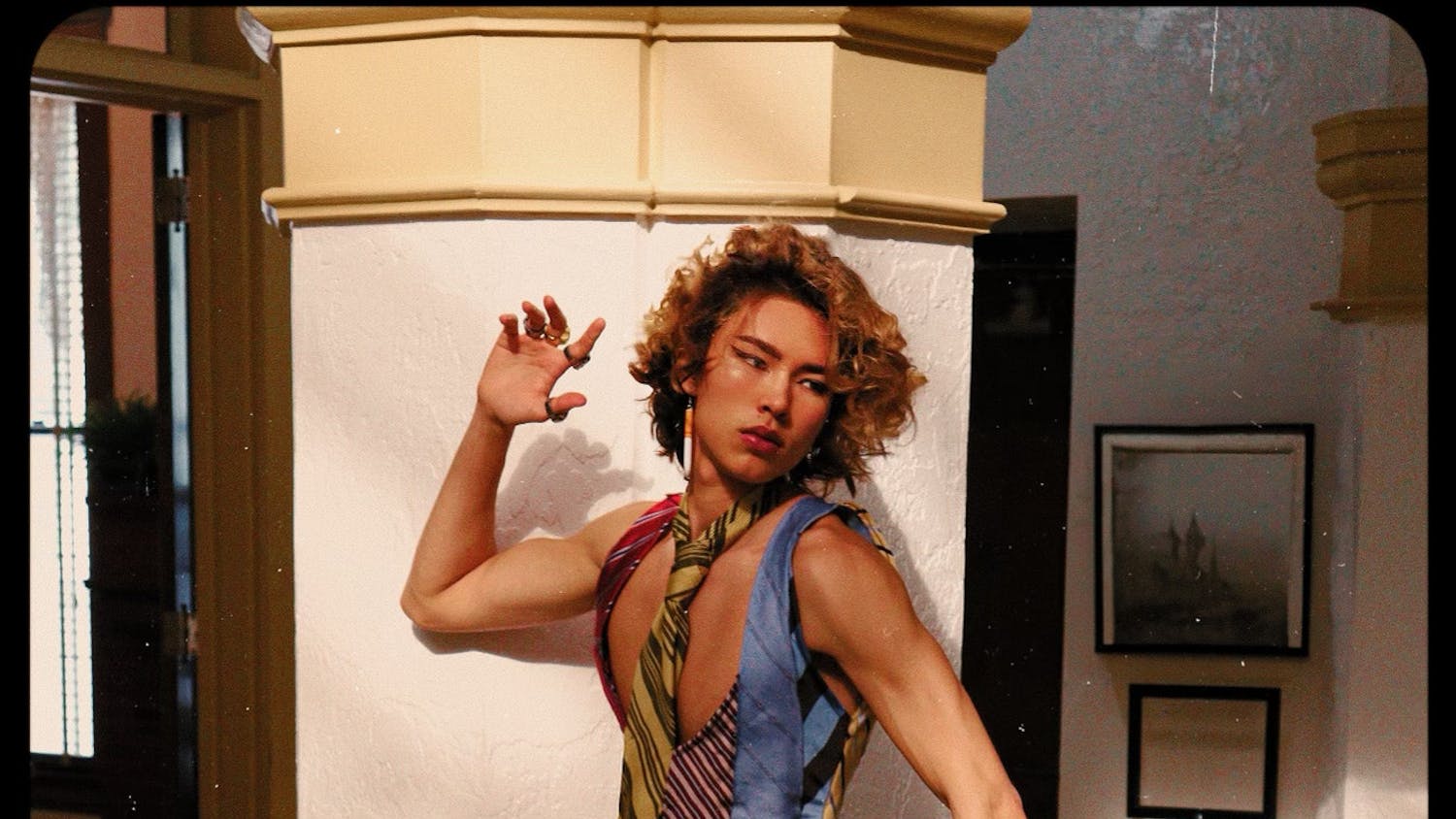Spring is abloom, but ignore the flower prints and bright colors: What you should really be digging out of your closet is the pair of dad jeans you bought months ago at the thrift with the intention of turning into distressed cutoffs.
So what if you never got around to doing the dirty work? By now you’ve missed the peak of the underbutt trend.
The good news is those dad jeans have normcore written all over them.
Normcore is the trendy new way to state you don’t care about fashion by wearing things “normal” people would wear. Because just when you thought the word trendy couldn’t be any more cringe worthy, it became trendy to be anti-trend.
For those of you who still don’t follow, picture a style in which homeless-biker meets off-duty-model, a la baggy white crew-neck T-shirt, your favorite Gators windbreaker and Jerry-Seinfeld dad jeans paired with boxy running shoes.
Does this sound like your go-to outfit for the past six years? Congratulations on being normcore before normcore was a thing.
It’s hard to say when the anti-fashion fashion statement became a trend, but I first read about normcore in a New York Magazine article in February that explored the term not only as a way of dress but as a theory that people were moving away from fashion as a statement and viewing way of dress as a form of interconnectivity.
Since then, it seems “stylized blandness,” as New York Magazine writer Fiona Duncan put it, has been creeping up all over the place. Vanity Fair, GQ, Refinery29, Jezebel and even The New York Times have written about the trend. And hashtag-ability aside, I’m convinced it’s only a thing because people keep talking about it.
The idea behind normcore is that you wouldn’t be able to differentiate a person who actually cares about fashion from a person who wears New Balance sneakers and dad jeans because he’s from a time-warped suburban town in Idaho where dressing stylishly is much less of a desired skill than say, drawing magical beasts or hacking computers.
And I get that. No one said dressing well had to be at the top of everyone’s to-do list, but when did everyone get so caught up in being indistinguishable?
As far as 2014 goes, everyone is interested in self-branding. Even normcore icons like Blood Orange’s Dev Hynes and comedian Jerry Seinfeld have clearly distinguishable images on social media, and it seems they wouldn’t be much different in person.
Some fashion writers have said normcore’s purpose is to blend the wearer into the general public so that the wearer can be an Everyman, connecting with the population and eschewing popular fashion.
And that’s cool. I can see how wanting to connect with others is an incentive to dress differently.
But the idea of dressing a certain way to cultivate a certain feeling is something that’s done regularly. It’s why places have dress codes and period pieces have time-sensitive costumes.
If you’re having a hard time wrapping your head around this whole normcore thing, don’t worry — I am, too.
Where I’m most lost is in the idea of the terminology.
Who chose normcore, and why did they choose it?
Dressing like you’re stuck in the ‘90s doesn’t make you more normal than someone who’s embracing trends that have been inspired by various decades or vice versa.
The whole idea of normcore as a trend is just silly.
Normcore — the anti-fashion fashion statement — because nothing screams normal like, “Hey, I’m dressing this way to be normal.”
[Marjorie Nunez is a UF journalism senior. Her columns appear on Fridays. A version of this column ran on page 6 on 4/4/2014 under the headline "Embrace the dad jeans: Normcore is in"]





